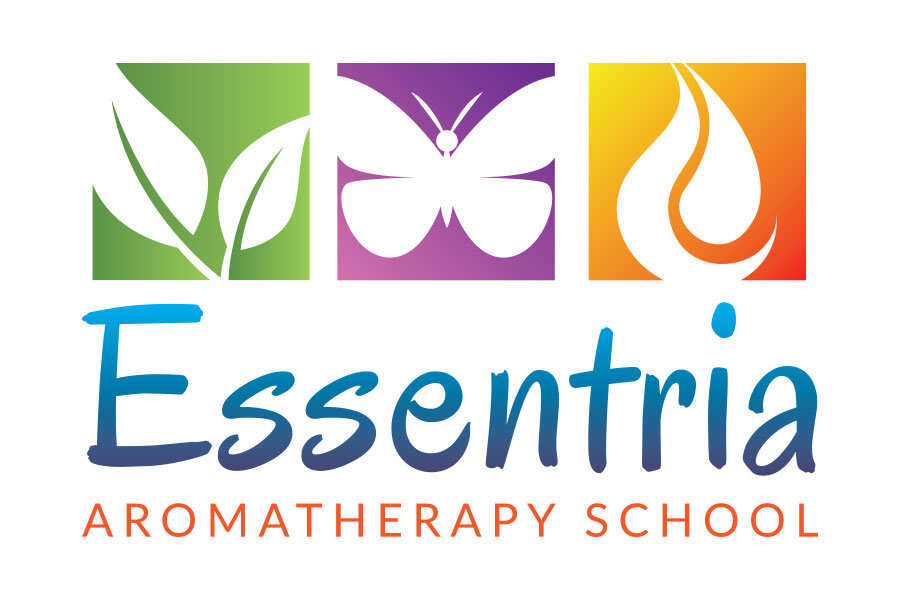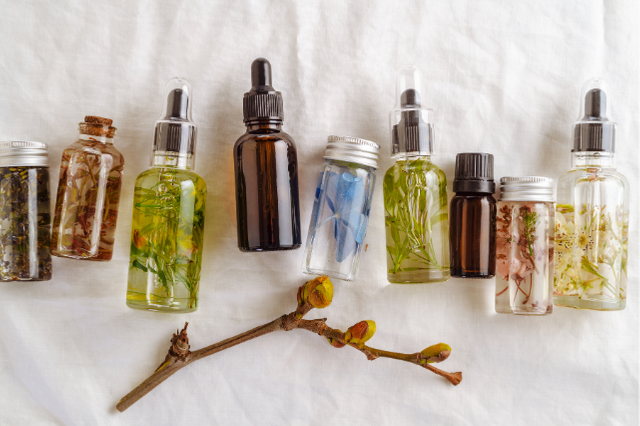What is Aromatherapy?
A Therapy of its own!
Many are led to believe aromatherapy is using essential oils when there is far more to this therapeutic approach than just essential oils.
Much like a homeopath uses homeopathic therapies, a naturopath uses natural therapies, a herbalist uses plants, a massage therapist uses massage, a nutritionist uses food, an aromatherapist uses plant based aromatics.
Aromatherapy is technically a branch of phytomedicine (1), “Phytomedicine can be defined as the herbal medicine with therapeutic and healing properties” (2).
Historically aromatic therapies started with infusions, herbs left in carrier oils. Extraction of the essence of the oil became a practice in the 1500s when distillation practises started. Extractions through alcohol are documented as early as the fourteenth century (3).
Essential oils are volatile oils extracted from plants, there are various methods of extraction, steam distillation is the most common method. This involves taking plant matter, adding to a still of water and heating up so the essence of the plant can be separated from the rest of the plant.
But beyond essential oils, aromatherapy is actually a practice of using aromatic compounds and the approach can involve not using essential oils at all.
Aromatherapy as a practice is using a qualified therapist, such as a Certified Aromatherapy Health Professional (CAHP)® in Canada or Certified Clinical Aromatherapist (NCCA)® in the US, to guide you through aromatic therapies. Each country and regulating body will have its own trademark. As a whole there is no title recognized for aromatherapists worldwide (like most holistic industries), so it will depend on the therapist's location and associating body.
Since aromatherapy is an unregulated industry in many countries, we strongly encourage the public to reach out to the therapist and investigate their qualifications, a professional should have completed unbiased education, be continuing to develop professionally like most professions, have appropriate insurance to protect their business and their clients and finally follow professional standards as outlined by the associations local to them that set standards higher than anything unrecognized.
In practice, an aromatherapist should take a full health history, including any medical conditions, allergies and medications. Using that information, and why the client is seeing the therapist, will affect whether the therapist even uses essential oils or another product commonly used in aromatherapy.
Age of the client and location on the body matter also matter. For example, an aromatherapist may opt not to use essential oils on the face but instead use a hydrolat. Aromatherapy can involve the use of essential oils, carrier oils (usually a cold-pressed vegetable or nut oil), CO2 extracts, absolutes, and hydrolats.
Aromatherapy offers many benefits, a huge one being that the consumer or client seeking help is only using products they need in quantities and approaches that benefit their body, while keeping the risk of harm low.
The mass increase in consumers buying and using essential oils has increased the availability of them, as well as increased the misuse of them. Additionally the popularity of essential oils has misled the public to believe that using essential oils is aromatherapy, when really only an aromatherapist is qualified to practice and guide the consumer through using aromatherapy safely.
A qualified professional in Canada would be required to take over a 400 hour recognized program that would dive deep into the nature of the plants, how they are used as essential oils, carrier oils, hydrolats, etc., the science and chemistry behind them, anatomy and physiology and so much more. Upon completing the program, a professional aromatherapist would have passed 5 hours of exams to prove their competency in the subject and the human body.
As the use of essential oils has increased, the healthcare modalities using them and educating in them have as well. For example, pharmacists in Canada and/or the US can take a single course, roughly 20-40 hours on aromatherapy as part of their degree program, some doctors have reported taking weekend courses or professional development courses in aromatherapy as well. This does not qualify them in the subject, but it is a great starting point to work with professionals across modalities, especially since in Canada, pharmacists are the professionals who fill prescriptions written by doctors and can have enough knowledge to help the patient avoid contraindications associated with their medicinal therapies. Additionally, a trained aromatherapist will know or have access to tools to inform a client looking for aromatherapy of any potential risks should the client come to them with those questions instead of the prescribing physician or pharmacist.
REFERENCES
Barcan R. Aromatherapy and the mixed blessing of feminization. The Senses and Society, 2014; 9(1):31-54. And Battagalia S., The complete Guide to Aromatherapy, Third Ed., Vol ! - Foundations & Materia Medica, The Black Pepper Creative, Brisband, 2018; page 4
https://www.sciencedirect.com/topics/nursing-and-health-professions/phytomedicine
Battagalia S., The complete Guide to Aromatherapy, Third Ed., Vol ! - Foundations & Materia Medica, The Black Pepper Creative, Brisband, 2018; page 33
Take a video tour to familiarize yourself with our Clinical Aromatherapy classes!
CLINICAL AROMATHERAPY CERTIFICATION COURSE which includes:
CLINICAL AROMATHERAPY CERTIFICATION - MODULE 1 - ESSENTIAL OILS
ANATOMY & PHYSIOLOGY - MODULE 2
Clinical Aromatherapy Certification
Buy together and save!
$1096
Become certified today!
Signup for the Clinical Aromatherapy Certification Course and it includes:
Clinical Aromatherapy Certification - Module 1 - Essential Oils
LEARN MORE WITH ESSENTRIA!
Want to learn more about how to use essential oils in your home, check out our free no strings attached online course here.
Plus consider joining us in our Facebook group Love Essential Oils with Essentria where we post tips and tricks on how to use aromatherapy safely in your daily life.
Want to learn more about how to become an aromatherapist, check out our certification courses and bundles offered online here.




